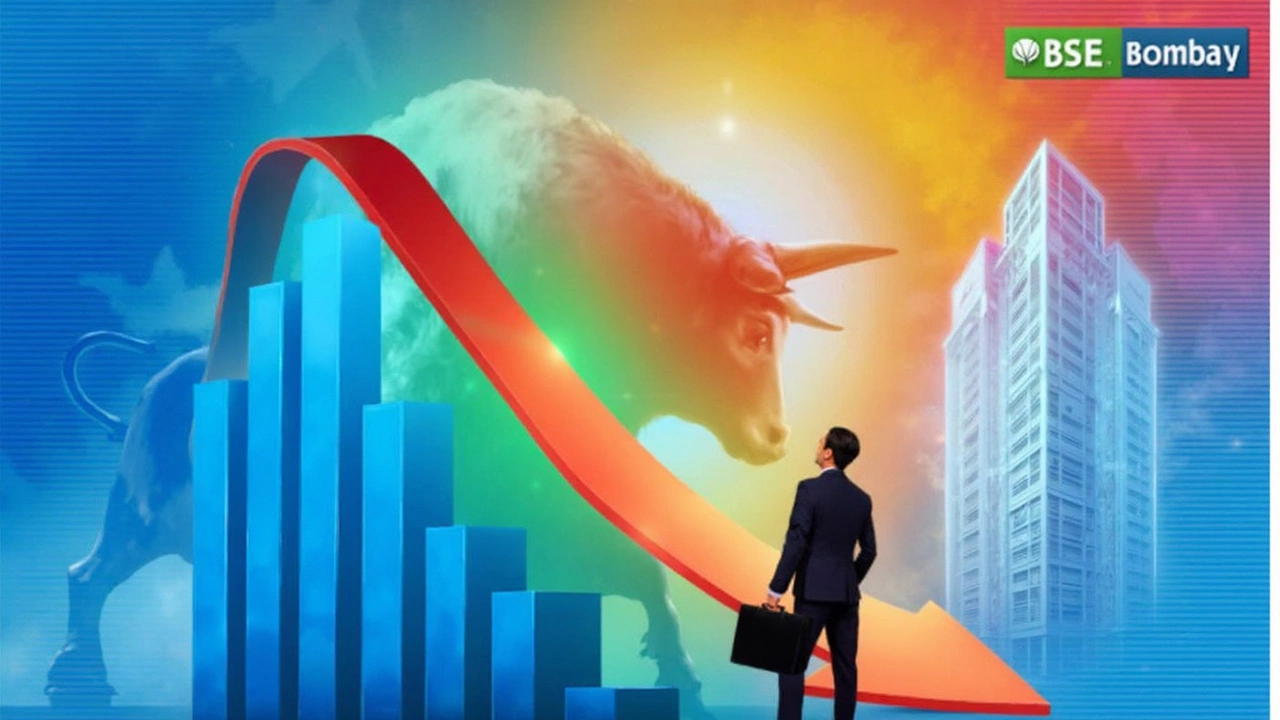BSE – Bombay Stock Exchange: What You Need to Know
If you hear the term BSE while scrolling finance news, it’s talking about India’s oldest and one of its biggest stock exchanges. Founded in 1875, the Bombay Stock Exchange isn’t just a historic building in Mumbai – it’s a digital marketplace where millions of shares change hands every day.
Why should you care? Whether you’re a seasoned investor, a curious student, or someone thinking about dipping a toe into markets, the BSE affects the price of the companies you see on TV, the performance of mutual funds, and even the value of your retirement savings. In short, it’s a key pulse‑check for the Indian economy.
Why BSE Matters for Investors
The BSE hosts more than 5,500 listed companies, ranging from small‑cap startups to giant conglomerates like Reliance and TCS. Because of its wide coverage, the S&P BSE Sensex – the 30‑stock index – is a quick gauge of market sentiment. When the Sensex climbs, it often signals confidence in growth; when it drops, investors tend to become more cautious.
Another advantage is transparency. The BSE follows strict reporting rules, and all trades are recorded in real‑time on its electronic platform, BSE Online Trading. This means you can check live prices, volume, and historical data without needing a broker’s office.
For traders, the BSE also offers a variety of instruments beyond equities – you get futures, options, and exchange‑traded funds (ETFs). These tools let you hedge risks or speculate on market moves, giving more flexibility than a plain‑vanilla stock purchase.
How to Trade on BSE
Getting started is easier than you think. First, you’ll need a trading account with a registered broker that offers BSE access. Most online platforms let you open an account in a few minutes, verify your ID, and link a bank account for fund transfers.
Once your account is set, you can place orders through the broker’s app or website. There are two common order types: market order (buy/sell at the current price) and limit order (set a price you’re willing to trade at). For beginners, limit orders help avoid surprises caused by sudden price spikes.
Don’t forget to keep an eye on transaction costs. The BSE charges a small brokerage fee, plus a securities transaction tax (STT). These fees are usually a fraction of a percent, but they add up if you trade frequently.
Lastly, stay informed. The BSE releases daily market reports, and you can follow news on corporate earnings, policy changes, and global events that move Indian stocks. Subscribing to a reliable finance newsletter or using a stock‑monitoring app can save you time and help you make smarter decisions.
In a nutshell, the BSE is more than a historic name – it’s a live platform that powers India’s financial growth. Understanding how it works, why it matters, and the basics of trading there can give you a real edge, whether you’re building a long‑term portfolio or just watching market trends for fun.
BSE Stock Price Drop Explained: Bonus Issue, Not NSE-SEBI Feud Behind Sharp Fall
BSE's stock price saw a dramatic dip of 66-67% on May 23, 2025, after a 2:1 bonus issue kicked in. The fall was a technical adjustment, not a sign of trouble. While it looked like a crash, the move followed standard market rules for bonus shares and had nothing to do with regulatory disputes.
VIEW MORE